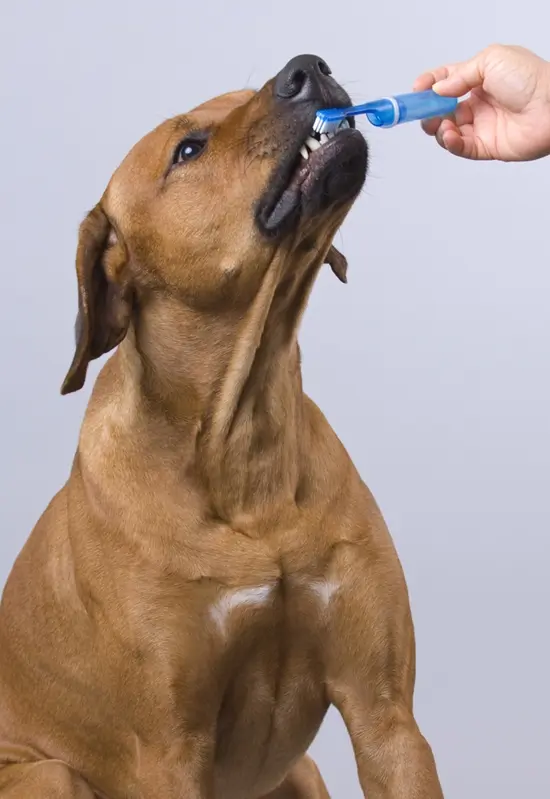Do clean teeth have to come at the expense of a clean environment?
Here in New Zealand, we pride ourselves on being clean and green. We're lucky enough to live in one of the most beautiful countries on the planet, so it makes sense that we want to take care of it. The little things we do (or don't do) in our day to day lives can have a big impact – and that includes brushing our teeth.
Good dental care starts with brushing your teeth twice a day. It's a habit that most of us don't even think about, but it's worth examining your dental health regime to make sure taking care of your teeth isn't damaging the environment.
We have put together a few tips on how to reduce your environmental impact while still having a healthy mouth.
Finding ways to reuse your old toothbrushes is one step towards reducing landfill.
1. Recycle your toothbrush
You should replace your toothbrush every three months, or as soon as the bristles start to wear out, as per the New Zealand Dental Association's recommendations. That means discarding around four toothbrushes a year.
Individually, throwing away four toothbrushes might not seem like a lot of waste. However, think about the entire population of New Zealand disposing of four toothbrushes yearly – that's millions of toothbrushes (hundreds of tonnes!) of landfill every twelve months.
Finding ways to reuse and recycle your old toothbrushes is one step towards reducing that landfill. Luckily, even though a three-month-old toothbrush may no longer be adequate for cleaning your teeth, it can still do a lot of other things. Instead of throwing away your old toothbrush whenever you buy a new one, try one of these ideas for recycling your toothbrush.
- Cleaning aids. Toothbrushes aren't just great for cleaning plaque off your teeth. The small heads on toothbrushes make them ideal for cleaning small spaces and crevices around the house. Scrub grouting in between bathroom tiles, around the base of taps in the kitchen, in the corners of windows and in any other hard-to-reach areas that accumulate grime. Toothbrushes also come in handy for cleaning things like keyboards and shoes. Label each old toothbrush with its new purpose or destination (for example, 'kitchen' or 'bathroom') so you don't mix them up.
- Pet aids. Why not give your furred friend something to chew on? Toothbrushes make great cat toys. They can also be used to brush your pet's teeth if required. For smaller pets, like guinea pigs, toothbrushes can also come in handy for grooming.
- Paint brushes. If you have kids in the house, or have an artistic streak, don't waste money buying brand new paint brushes. Re-purpose your toothbrush and turn it into a tool for creating textured paint strokes.
2. Choose eco-friendly
Another option for greening up your toothbrush is to choose one made from more eco-friendly materials. Not all toothbrushes are created equal, so there are certainly alternatives to the standard plastic variety. Sustainable, bamboo-handled toothbrushes are available in many health stores. Biodegradable nylon bristles mean toothbrushes labeled as environmentally friendly can be composted, decomposing completely.
For other dental care items, avoid single-use plastic where possible. For example, choose simple floss over the floss picks that you use once and then bin. Those little plastic floss sticks don't disappear when you throw them away; they end up in landfill or oceans. Reducing the amount of plastic you consume can really make a difference in the long run.

3. Watch your water usage
For many people, the first step to tooth brushing is dunking your toothbrush under the tap. After wetting the bristles, it's easy to leave the water on while you brush. However, running the tap while brushing your teeth isn't a harmless habit – it can be a serious waste of water.
Fresh water is a valuable resource in New Zealand. Not only do we have lots of it, but it is clean and good quality. Just because our freshwater is plentiful, however, doesn't mean we can squander it.
A growing population combined with climate change means water management is becoming increasingly important, stresses the Ministry for the Environment. Water isn't in limitless supply, on the contrary in locations across the country we are edging closer to the limits on the amounts of water available to use. Conserving water is a responsibility we all need to shoulder.
Leaving the tap running while brushing your teeth seems like a small action, but it adds up. Save hundreds of litres of water a week (and your water bill expense) by turning the tap off while you brush your teeth.
You can take care of your teeth and the environment at the same time. Because we care about your teeth as well, we are here to help when you need to go for your next dental check up. We hope to see you soon!
